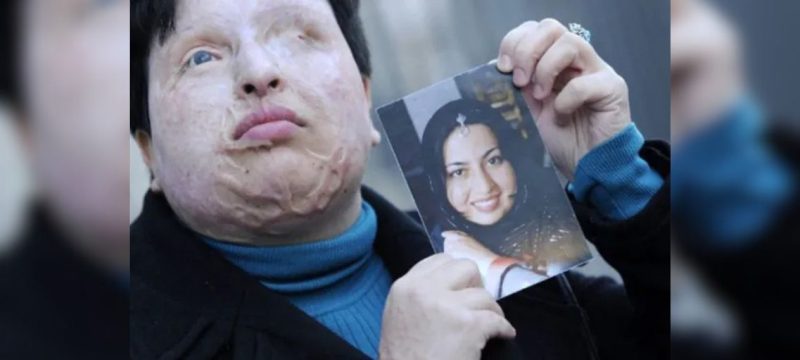In a case that shook the world and reignited debates on justice, retribution, and women’s rights, a courageous Iranian woman who survived a brutal acid attack in 2005 took a powerful stand against her attacker—demanding justice in the exact form she was assaulted.
The horrific incident began when the woman, identified as Ameneh Bahrami, rejected a marriage proposal from a man named Majid Movahedi. Consumed by rage and entitlement, Majid later stalked her and, in a horrifying act of revenge, threw acid on her face in public—disfiguring her permanently and blinding her in both eyes.
Read more: Tragic Acid Attack in Rawalpindi: Woman Targeted by Ex-Husband Over Divorce Case
Ameneh’s life changed forever. She endured unimaginable pain and had to go through 19 surgeries to treat her burns and facial damage. But what stood out most wasn’t just her survival—it was her bold and controversial demand for justice.
Instead of seeking monetary compensation or a lengthy prison sentence for Majid, Ameneh insisted on exercising her right under Iranian law: qisas (equal retribution). She asked the court to allow her to blind her attacker in both eyes with acid, just as he had done to her. The court granted her request, sparking widespread global discourse on justice, mercy, and the limits of revenge.
Although the sentence was approved and preparations were made, Ameneh eventually made a powerful decision. In a moment that stunned observers, she forgave her attacker at the last moment, sparing him from being blinded.
Her story is not just one of unimaginable suffering, but also of strength, dignity, and complex human emotion. It remains one of the most haunting and talked-about examples of victim-led justice in modern history, raising difficult questions about pain, punishment, and the true meaning of justice.





